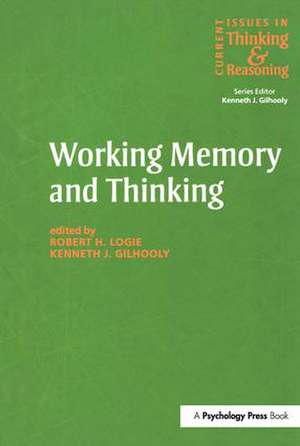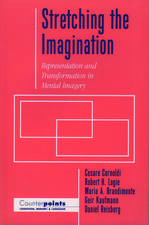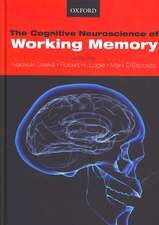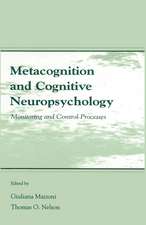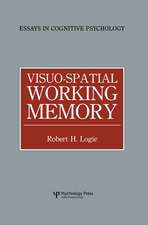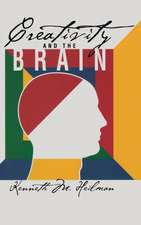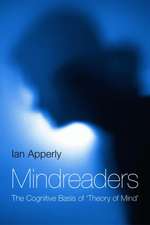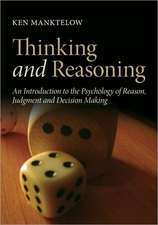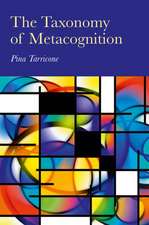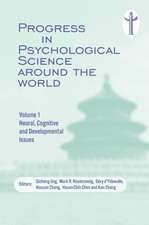Working Memory and Thinking: Current Issues In Thinking And Reasoning: Current Issues in Thinking and Reasoning
Autor Kenneth Gilhooly, Robert H. Logieen Limba Engleză Paperback – 17 ian 2019
| Toate formatele și edițiile | Preț | Express |
|---|---|---|
| Paperback (1) | 316.27 lei 6-8 săpt. | |
| Taylor & Francis – 17 ian 2019 | 316.27 lei 6-8 săpt. | |
| Hardback (1) | 917.50 lei 6-8 săpt. | |
| Taylor & Francis – 27 feb 1998 | 917.50 lei 6-8 săpt. |
Preț: 316.27 lei
Nou
Puncte Express: 474
Preț estimativ în valută:
60.54€ • 65.78$ • 50.88£
60.54€ • 65.78$ • 50.88£
Carte tipărită la comandă
Livrare economică 21 aprilie-05 mai
Preluare comenzi: 021 569.72.76
Specificații
ISBN-13: 9781138877153
ISBN-10: 1138877158
Pagini: 180
Dimensiuni: 156 x 234 x 12 mm
Greutate: 0.3 kg
Ediția:1
Editura: Taylor & Francis
Colecția Routledge
Seria Current Issues in Thinking and Reasoning
Locul publicării:Oxford, United Kingdom
ISBN-10: 1138877158
Pagini: 180
Dimensiuni: 156 x 234 x 12 mm
Greutate: 0.3 kg
Ediția:1
Editura: Taylor & Francis
Colecția Routledge
Seria Current Issues in Thinking and Reasoning
Locul publicării:Oxford, United Kingdom
Public țintă
Postgraduate, Professional, and UndergraduateRecenzii
'The book is a useful resource for cognitive psychologists insofar as it gives a good account of current research in the area the editors of this book have succeeded in their aim of providing an integrated understanding of human thinking and memory.' - John T.E. Richardson, Brunel University in Neuropsychologia 38 2000
Cuprins
K.J. Gilhooly, R.H. Logie, Thinking in Working Memory. K.J. Gilhooly, Memory, Strategies, and Reasoning Tasks. L.H. Phillips, M.J. Forshaw, The Role of Working Memory in Age Differences in Reasoning. S. Della Sala, R.H. Logie, Dualism Down the Drain: Thinking in the Brain. R.W. Engle, A.R.A. Conway, Working Memory and Comprehension. K.A. Ericsson, P.F. Delaney, Working Memory and Expert Performance. P. Saarilumoa, Adversary Problem-Solving and Working Memory. G.S. Halford, Development of Processing Capacity Entails Representing More Complex Relations: Implications for Cognitive Development.
Notă biografică
Kenneth Gilhooly, Robert H. Logie
Descriere
With contributions from international researchers on working memory and thinking, this volume aims to break down the scientific divisions and foster scientific integration in the connections between these two core functions of cognition.
